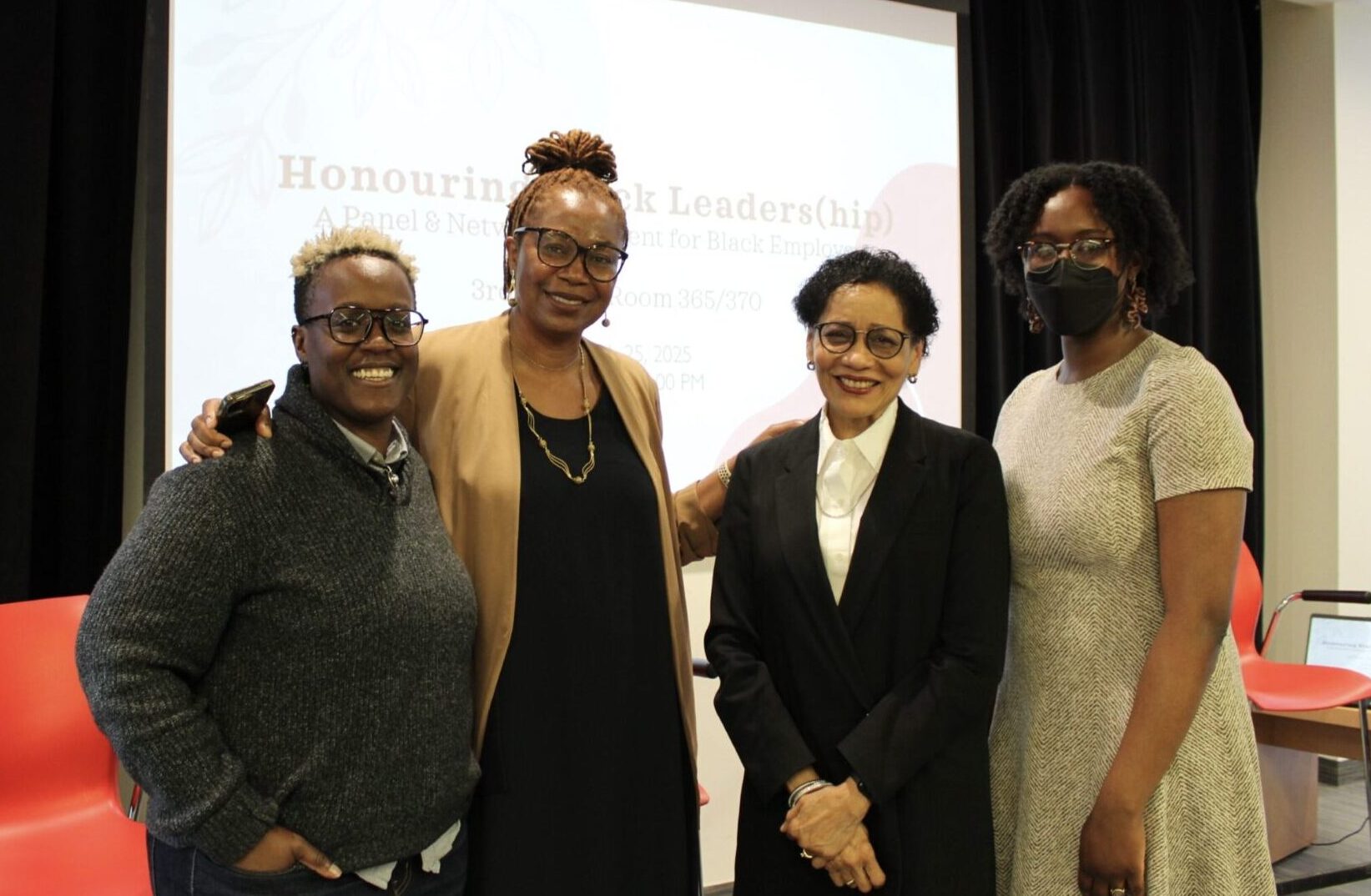
The number of Black employees at McGill is steadily growing, with the University recognized as a Top Diversity Employer in Montreal. But progress remains to be made, particularly in increasing representation among senior staff. Events like Honouring Black Leaders(hip) are helping to spark change.
Held Tuesday, March 25, at the Armstrong Building, the event provided a space for employees to connect, network and learn from Black leaders at McGill, as well as to share their own experiences and contributions as they explored pathways to greater representation and equity in leadership.
In alignment with Women’s History Month, the panellists were Black women in senior roles, including Brittany Williams, Assistant Dean in the Faculty of Law; Yolande Chan, Dean of the Desautels Faculty of Management; and Chidinma Offoh-Robert, Senior Director of Strategy and Operations in the Office of the Vice-President, Administration and Finance.
Shanice Yarde, Associate Director of Anti-Racism and Equity Education in the Office of the Provost and Executive Vice-President (Academic) served as moderator. She spoke of the event’s value in promoting Black leadership.
“It’s rare for us to have spaces to come together and talk about our experiences and challenges,” Yarde said, noting such gatherings also combat isolation.
The packed room underscored the demand for opportunities for connection, with attendees engaged and open with their stories.
‘Leadership isn’t by title, but by impact’
Co-organized by the McGill Equity Team, the Black Employee Resource Group and Human Resources, the event featured a structured networking segment. Panel themes included resilience, authenticity and the successes and challenges experienced by leaders.
“Leadership isn’t by title, but by impact,” said Chan.
“All of us shared that one or more people pushed us through, be it other Black people or allied folks saying our name in rooms we weren’t in,” Williams added.
During the discussion, Offoh-Robert said her mother, a former teacher, greatly influenced her perspective on leadership.
“How do you effect change in and out of the classroom? We need to effect change within our roles in universities and we need to think about how we do this in various spaces,” Offoh-Robert said.
For Black employees and emerging leaders, Chan explained, the ability to effect change means moving from surviving to thriving.
“There comes a point where we go beyond simply making ends meet, not just financially, but in terms of careers,” she said. “We’ve gone beyond coping and now we want to be adding to our communities, to be thriving in them, and having the community thrive because we’re in it, too.”
Recognizing current leaders and inspiring new ones
Undergraduate student Tamaya Savage assisted with communications and day-of logistics for the event through her work-study role on the Equity Team. She said that for her, the panel helped demystify mentorship and underscored the value of increased representation at the leadership level.
“I realized how accessible it is to find a mentor, and the panel further cemented the importance of building meaningful connections with people who inspire you,” she said.
“To hear these women’s stories is truly relatable as another Black woman. You innately know what they’ve had to overcome to be in their positions. This person had locs like I do, they studied education like I want to. I can see myself in these positions even more because people on the panel looked like me and had the same ambitions as I do now.”
A former McGill student herself, Williams reflected on the cultural shift she has witnessed since transitioning first to an administrative and support role, then senior administration.
“I see not just more places at tables, but more tables being created. Shanice and others did a great job of curating a collaborative space. It was a recognition of all of us being leaders, having leadership potential in the different places we are and roles we hold.”
Yarde says that recognition is a crucial step.
“Often, the labour around Black leadership is not recognized, credited or seen as legitimate, particularly for Black women. We wanted to both challenge the idea of what a leader looks like and acknowledge all the leaders already in the room.”
